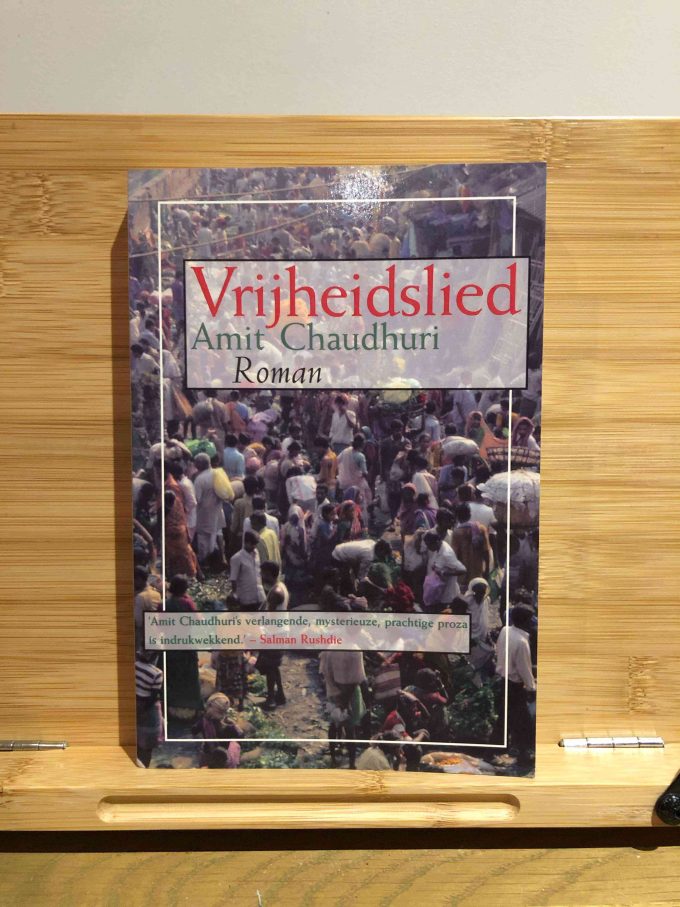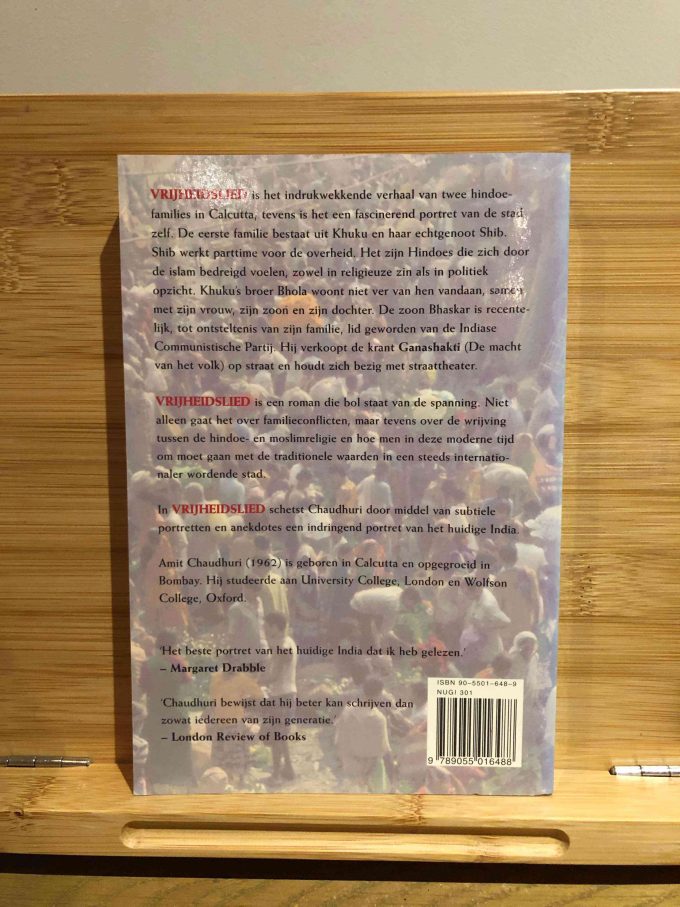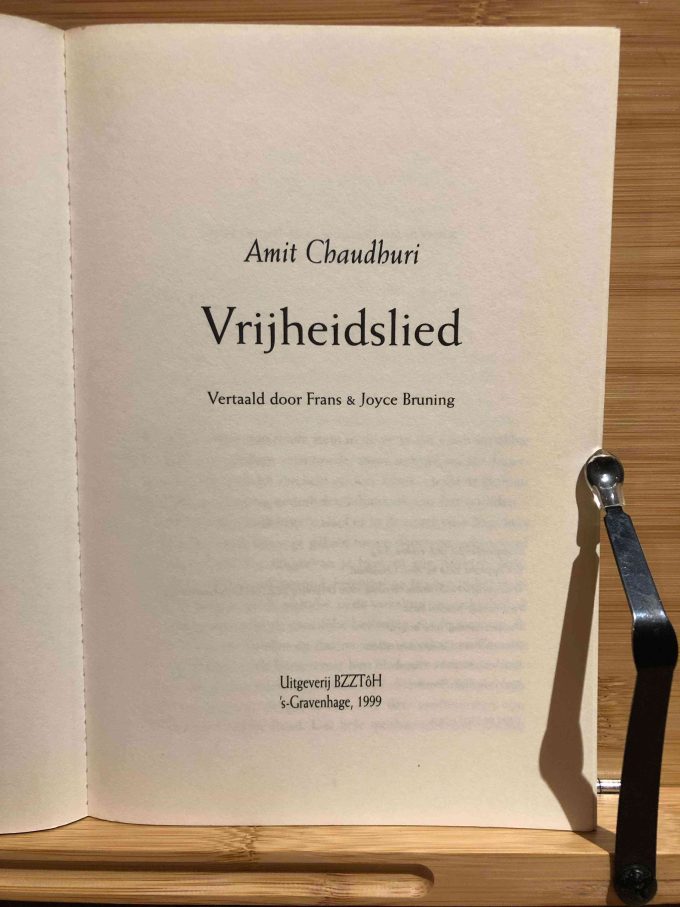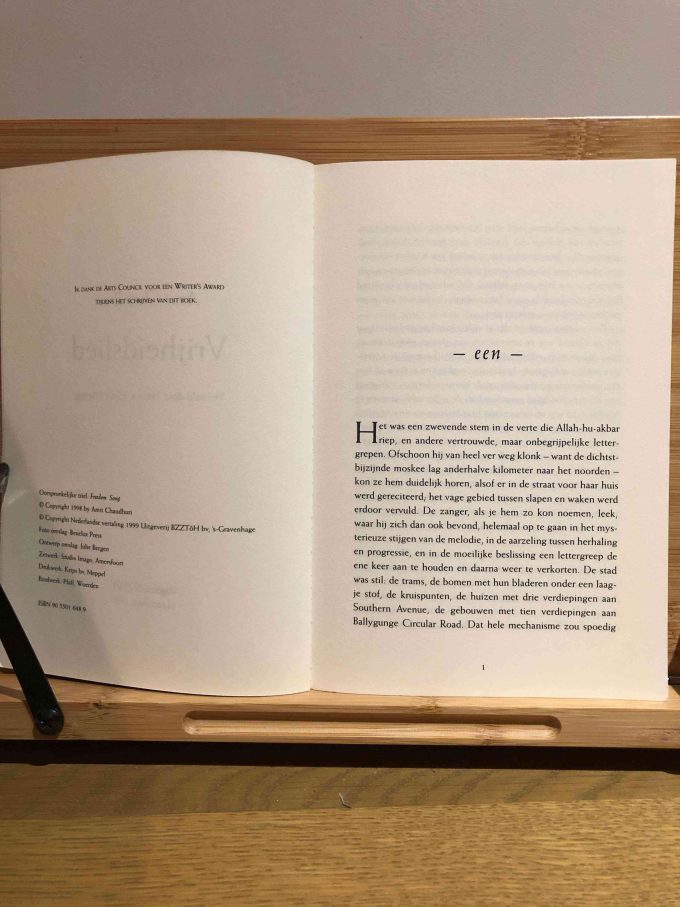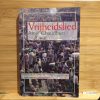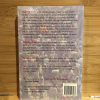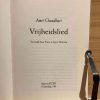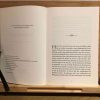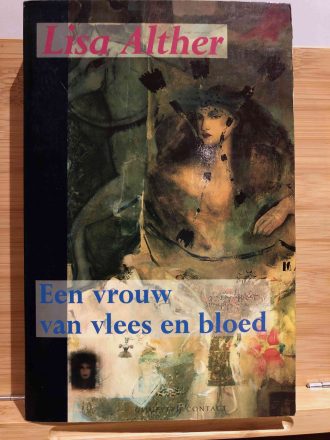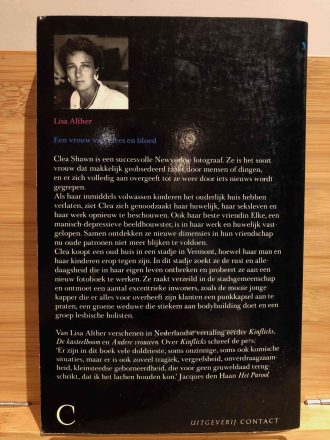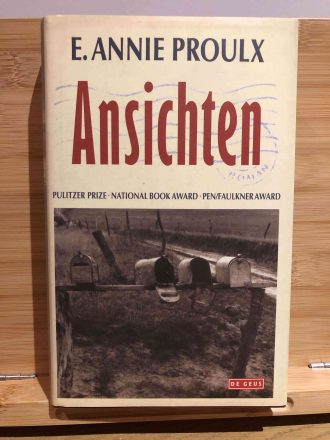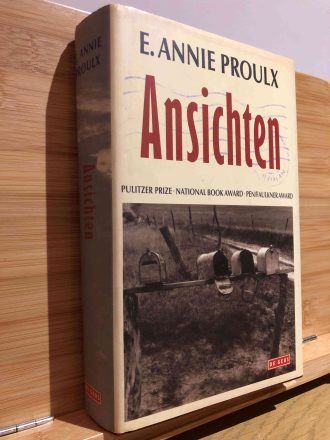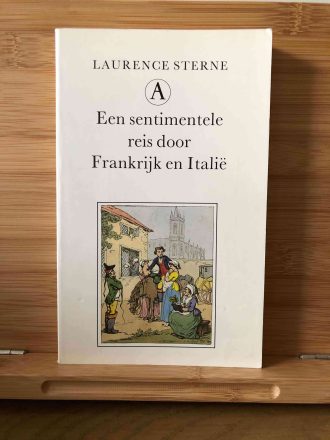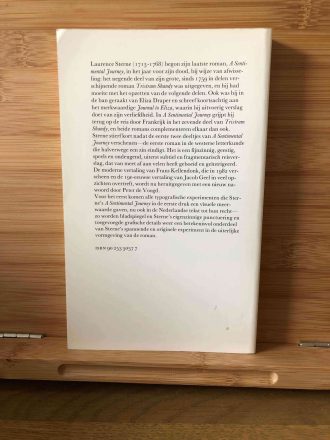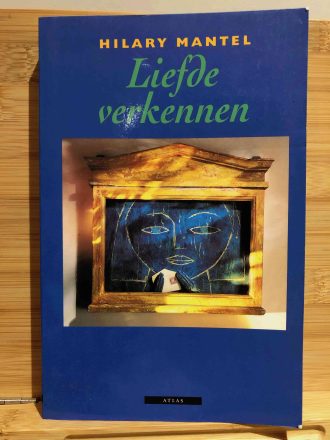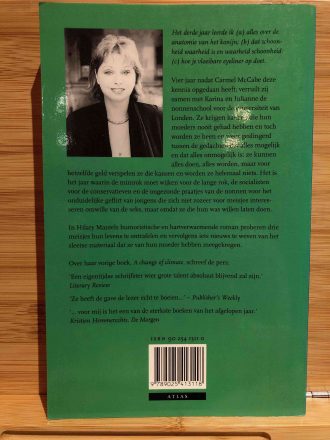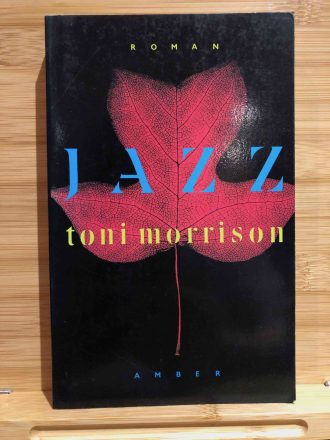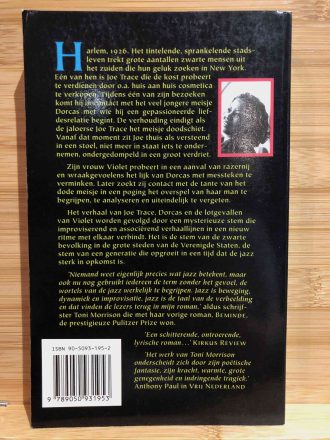Nederlands
Vrijheidslied is het indrukwekkende verhaal van twee hindoe-families in Calcutta; tevens is het een fascinerend portret van de stad zelf. De eerste familie bestaat uit Khuku en haar echtgenoot Shib. Shib werkt parttime voor de overheid. Het zijn Hindoes die zich door de islam bedreigd voelen, zowel in religieuze zin als in politiek opzicht. Khuku’s broer Bhola woont niet ver van hen vandaan, samen met zijn vrouw, zijn zoon en zijn dochter. De zoon Bhaskar is recentelijk, tot ontsteltenis van zijn familie, lid geworden van de Indiase Communistische Partij. Hij verkoopt de krant Ganashakti (De macht van het volk) op straat en houdt zich bezig met straattheater. Vrijheidslied is een roman die bol staat van de spanning. Niet alleen gaat het over familieconflicten, maar tevens over de wrijving tussen de hindoe- en moslimreligie en hoe men in deze moderne tijd om moet gaan met de traditionele waarden in een steeds internationaler wordende stad. In Vrijheidslied schetst Chaudhuri door middel van subtiele portretten en anekdotes een indringend portret van het huidige India.
Niet het verhaal van twee welgestelde hindoe-families in Calcutta is bijzonder, maar de manier waarop zij, hun omgeving, hun bedienden en de stad worden beschreven: in beelden die niet door de ogen maar door het gevoel worden ingegeven. Een ontleding van de werkelijkheid met feilloze metaforen. Vooral het eerste deel van dit boek met verstilde portretten van huiselijke taferelen voert je mee naar een huis en een stad waar je normaal geen toegang toe zou krijgen. Die intimiteit is de kracht van deze schrijver. Het feitelijke verhaal van beide families is anekdotisch. Een onvermijdelijke levensloop ingecalculeerd in hindoeïstisch denken. De schrijver heeft nergens een poging gedaan om een duidelijke rode draad vast te houden. Niet de ontrafeling van allerlei verwikkelingen is zijn sterke kant, maar die ondertoon van gebeurtenissen die op het eerste gezicht onbeduidend lijken en toch de kern vormen van het dagelijks bestaan. De auteur hanteert dezelfde poëtische schrijfstijl als Arundhati Roy (Bookerprize ’97). Spanningen zijn onderhuids en terloops en waarschijnlijk daarom des te sterker aanwezig. Amit Chaudhuri (1962) is geboren in Calcutta en opgegroeid in Bombay. Hij schreef eerder de roman ‘A strange and sublime address’ (1991, nog niet vertaald) en kreeg daarvoor de Betty Trask Award.
English
Freedom Song is the impressive story of two Hindu families in Calcutta; it is also a fascinating portrait of the city itself. The first family consists of Khuku and her husband Shib. Shib works part-time for the government. They are Hindus who feel threatened by Islam, both religiously and politically. Khuku’s brother Bhola lives not far from them, with his wife, son, and daughter. The son, Bhaskar, has recently, to the dismay of his family, joined the Indian Communist Party. He sells the newspaper Ganashakti (The Power of the People) on the streets and is involved in street theater. Freedom Song is a novel filled with tension. It not only deals with family conflicts but also with the friction between Hindu and Muslim religions and how to cope with traditional values in an increasingly international city. In Freedom Song, Chaudhuri paints a compelling portrait of contemporary India through subtle portraits and anecdotes.
What makes the story of two well-off Hindu families in Calcutta unique is not the narrative itself but the way they, their environment, their servants, and the city are described: in images conveyed not by the eyes but by feelings. An analysis of reality with flawless metaphors. The first part of the book, with still portraits of domestic scenes, especially draws you into a house and a city you would not normally have access to. This intimacy is the author’s strength. The factual story of both families is anecdotal. An inevitable life path calculated in Hindu thinking. The author has not attempted to maintain a clear thread. His strength is not in unraveling various entanglements but in the undertone of seemingly insignificant events that form the core of daily existence. The author employs the same poetic writing style as Arundhati Roy (Booker Prize ’97). Tensions are subtle and incidental, making them even stronger. Amit Chaudhuri (born 1962) is from Calcutta and grew up in Bombay. He previously wrote the novel A Strange and Sublime Address (1991, not yet translated) and received the Betty Trask Award for it.
